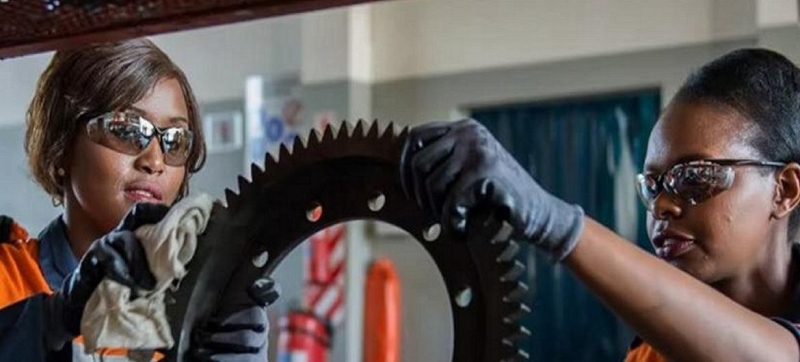- Dhaka records unhealthy air quality on Sunday morning |
- Govt letter to EC to hold election, referendum on same day |
- COP30 boosts funding for at-risk nations but avoids firm fossil fuel terms |
- When To Worry over Ceiling & Wall Cracks After An Earthquake |
- Stock market rebounds, DSEX gains 166 points over week |
UN Urges New Industrial Deal as Global Inequality Deepens

Two former students of the Zambian Industrial Training Academy, established with the support of UNIDO and other partners, work today at an engineering company.
Ministers and leaders from the world’s 44 least developed countries have pledged to accelerate inclusive industrialisation and strengthen resilience amid global challenges, at an international UN conference in Riyadh, Saudi Arabia.
“First, we need to end the war. Then, we have to restart the factories,” said Basher Abdullah, adviser to Sudan’s Minister of Industry and Trade.
Like many of the world’s poorest countries, Sudan’s efforts to develop its economy have been severely hampered by conflict. Yet even in the midst of a brutal civil war, the United Nations Industrial Development Organization (UNIDO) continues to provide economic development support and a path to recovery.
The fighting feels far removed from the vast King Abdul Aziz Conference Centre in the Saudi capital, where government ministers gathered on Saturday for a family photograph to mark the Eleventh Ministerial Meeting of Least Developed Countries.
Arriving from Asia, Africa and the Caribbean, the ministers share one thing in common: they each represent one of the poorest and most vulnerable nations in the world, officially designated by the UN as Least Developed Countries (LDCs).
‘Yes to global solidarity’
“We need a decisive change of direction,” declared Gerd Müller, Director-General of UNIDO, in his opening remarks, reminding delegates that industrialisation is “essential for achieving the Sustainable Development Goals and building resilience against crises.”
“We need to say yes to global solidarity, yes to multilateralism, and yes to preventing the gap between rich and poor from widening even further,” added Mr Müller.
He noted that 500 Nobel Laureates and economists are urging the world’s leading economies — the G20, currently meeting in South Africa — to take action. These experts highlight that between 2000 and 2024, the richest one per cent of the world’s population increased their wealth by 41 per cent, while the poorest half saw theirs rise by only one per cent.
Mr Müller pointed out that the world’s least developed countries are particularly vulnerable to economic shocks, ranging from the climate crisis to trade tariffs and major cuts in overseas aid from wealthy nations.
“The losses,” he warned, “will be devastating in sectors such as textiles, leather, agribusiness and equipment — all vital to livelihoods and local economies.”
Building resilience through industry
UNIDO’s mission is to help countries withstand these shocks and, through industrialisation, become more resilient and improve lives. In Bangladesh, UNIDO training programmes have helped garment factories meet international standards, creating millions of jobs for women. In Nepal, young people are being trained in coding and digital skills, helping close the digital divide.
Meanwhile, in Sudan, the agency is supporting agribusiness by assisting smallholders and entrepreneurs, helping young people and women access finance, and preparing the private sector for a future of peace and stability.
On Saturday, two major outcomes were achieved: guidelines for scaling up UNIDO support — focusing on technology and knowledge transfer — were agreed, and ministers committed to modernising industry, securing financing and working more closely together in line with the UN’s global goals.
The commitments made in Riyadh mark a significant step toward ensuring that millions of people in the world’s most vulnerable nations can thrive in an interconnected global economy.

